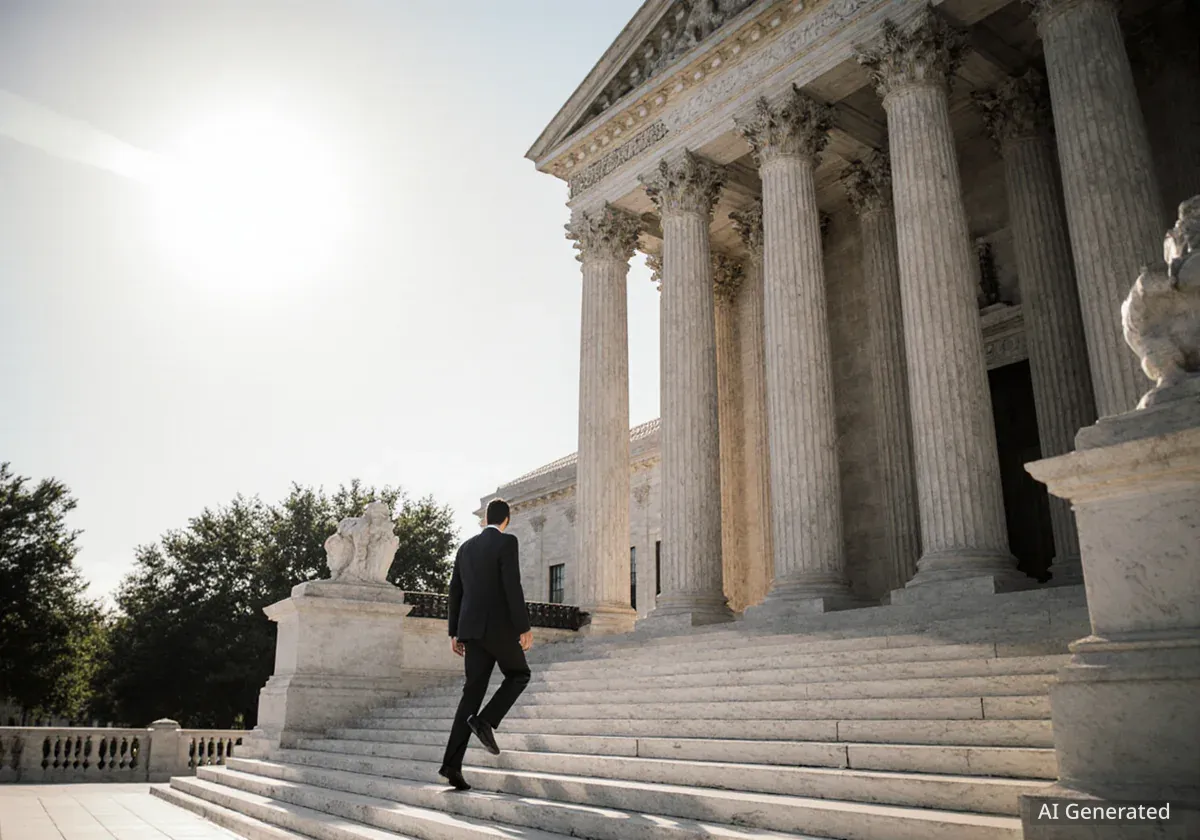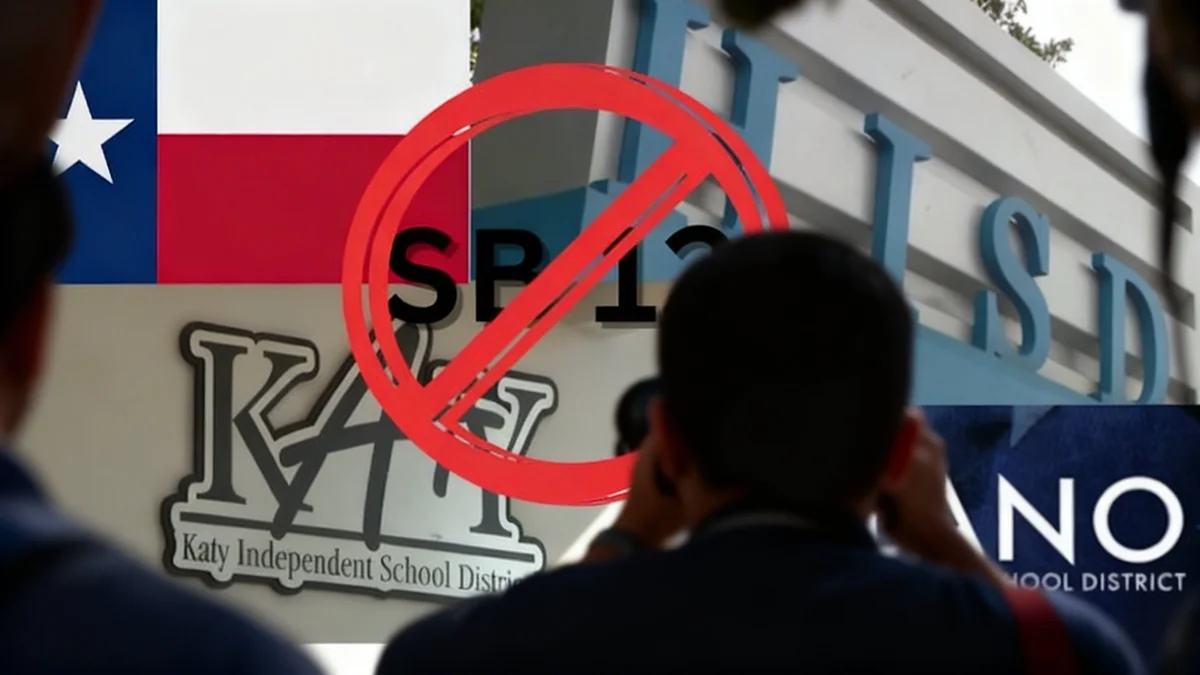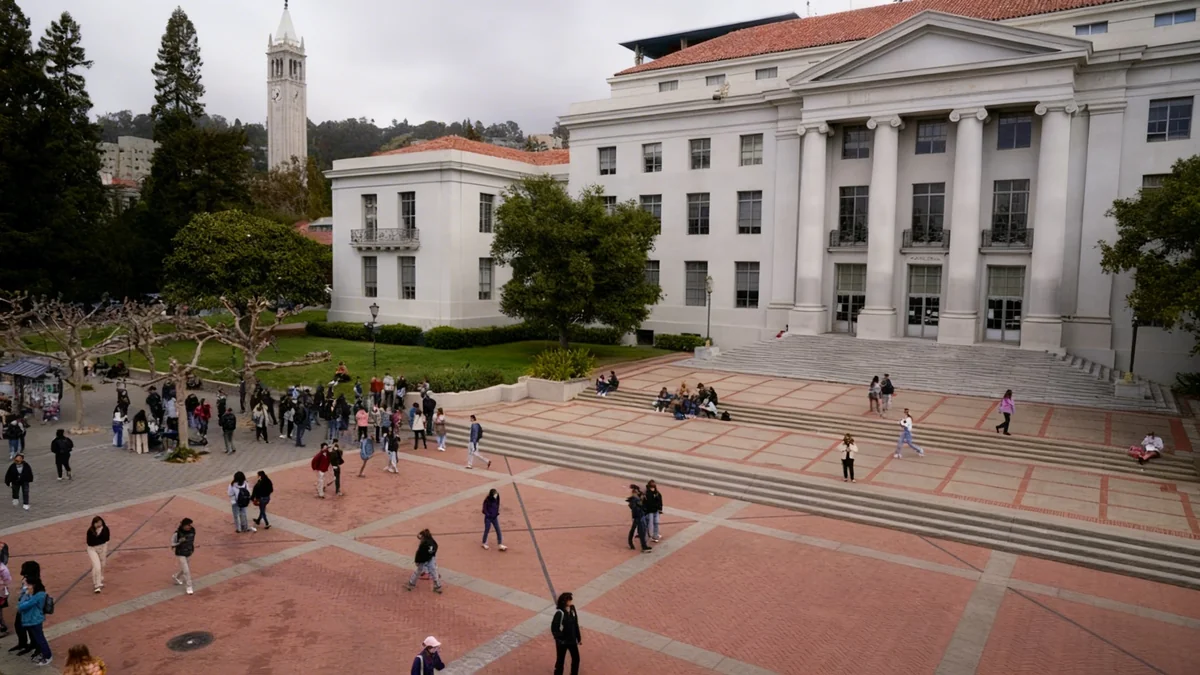A federal judge has issued a preliminary injunction ordering several Texas school districts to remove posters of the Ten Commandments from their classrooms. The ruling, delivered by District Judge Orlando L. Garcia, states that a state law mandating the displays is a violation of the U.S. Constitution.
The decision gives the affected school districts until December 1 to comply with the order. This development marks the latest turn in a contentious legal battle over the separation of church and state in public education, an issue gaining traction in several states across the country.
Key Takeaways
- A federal judge granted a preliminary injunction against a Texas law requiring Ten Commandments displays in public schools.
- The ruling found the mandate violates the Establishment Clause of the U.S. Constitution.
- Fifteen multifaith and nonreligious families filed the lawsuit that led to the injunction.
- Affected school districts must remove the posters by December 1.
The Court's Ruling Explained
The legal challenge centers on a Texas law, S.B. 10, which requires every public school classroom to display a poster of the Ten Commandments. In his decision, Judge Garcia concluded that the law infringes upon the Establishment Clause of the First Amendment, which prohibits the government from establishing a religion.
The lawsuit was initiated by a diverse group of 15 families, including those of various faiths and those who are nonreligious. They argued that the state-mandated religious displays created an unwelcoming environment for their children.
Judge Garcia wrote that it would be "impractical, if not impossible" to protect the plaintiffs from these unwelcome religious displays without stopping the districts from enforcing the law. This is the second time a Texas court has ruled against the mandate; another judge issued a similar decision in August, preventing the state from forcing certain districts to post the displays.
Understanding the Establishment Clause
The Establishment Clause is the first of several pronouncements in the First Amendment to the U.S. Constitution, stating, "Congress shall make no law respecting an establishment of religion." This clause is generally interpreted to prevent the government from establishing a national religion or unduly favoring one religion over another.
Advocacy Groups and Families Respond
Civil liberties organizations and the families involved in the lawsuit have welcomed the court's decision. They view it as a crucial victory for religious freedom and the principle of separating church and state.
Rachel Laser, the president and CEO of Americans United for Separation of Church and State, issued a statement following the ruling.
"All Texas public school districts should heed the court’s clear warning: It’s plainly unconstitutional to display the Ten Commandments in classrooms. Families throughout Texas and across the country get to decide how and when their children engage with religion — not politicians or public-school officials."
The plaintiffs' legal team argued that public schools should be inclusive environments for students of all backgrounds and beliefs. The presence of a state-endorsed religious text, they contended, undermines that goal and alienates students who do not adhere to that specific tradition.
A National Trend and Potential Supreme Court Showdown
Texas is not the only state where this issue has become a legal flashpoint. Similar laws have been passed in other states, leading to a series of court challenges that could eventually escalate to the nation's highest court.
Legislatures in states like Arkansas and Louisiana have also passed laws mandating the display of the Ten Commandments in public spaces, including schools. These measures have consistently faced legal opposition and have been struck down or challenged by courts on similar constitutional grounds.
State-Level Legislative Efforts
- Texas: S.B. 10 mandated posters in every public school classroom.
- Louisiana: A similar law was passed, also facing legal challenges.
- Arkansas: A measure requiring displays was also rebuked by the courts.
Many legal observers believe the persistent push for these laws is part of a broader strategy to bring the issue before the U.S. Supreme Court. Proponents hope that the current conservative majority on the court might be more inclined to revisit past precedents regarding religious displays in public institutions.
The Position of Texas State Officials
The state of Texas, represented by Attorney General Ken Paxton, has been a vocal defender of the law. In the past, Paxton's office has taken legal action against school districts that refused to comply with the mandate to display the posters.
Following this latest injunction, the Attorney General's office is expected to continue its defense of S.B. 10. The ongoing legal battles highlight a deep divide between state officials championing the law and the coalition of families and civil rights groups opposing it.
The next steps will likely involve further appeals, moving the case through the federal court system. For now, however, the classrooms in the school districts named in the lawsuit will be required to remove the displays, pending any further legal developments.





